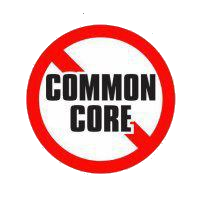“My Response: Common Core Reading in Kindergarten”
By Donna Garner
1.19.15
http://www.educationviews.org/response-common-core-reading-kindergarten/
Defending the Early Years (DEY) has released a report which challenges the Common Core Standards in Kindergarten reading and makes recommendations as to what is developmentally appropriate and inappropriate for children in K. The DEY report has indeed built a strong case to substantiate its claims that the Common Core is completely out of synch with what most kindergarten children are able to accomplish.
However, I scanned through the Defending the Early Years (DEY) report “Our New Report! Reading Instruction in Kindergarten: Little to Gain and Much to Lose,”
(https://deyproject.files.wordpress.com/2015/01/readinginkindergarten_online-1.pdf).
The DEY report has a few sections that mention the Bank Street developmental reading skills kindergarten children need, but I did not see an extensive explanation about phonemic awareness nor about phonics. I also did not see those all-important phonemic awareness/decoding skills mentioned in the “Recommendations” contained in the DEY report.
In the Sources, I did not see any references to:
National Right To Read – (http://www.nrrf.org/research-archive/#national-studies) (http://www.nrrf.org/explore/ )
Phonemic awareness – (http://www.nrrf.org/learning/scientific-principles-of-reading-instruction/) (http://www.nrrf.org/learning/overview-of-nichd-reading-and-literacy-initiatives/ )
Synthetic phonics — http://en.wikipedia.org/wiki/Synthetic_phonics
Marilyn Jager Adams’ Beginning To Read, c. 1994 (http://www.amazon.com/Beginning-Read-Thinking-Learning-about/dp/0262510766)
MRI’s – (http://news.stanford.edu/news/2012/september/austen-reading-fmri-090712.html ) (http://healthland.time.com/2013/02/20/researchers-find-a-biological-marker-for-dyslexia-in-kids/) (http://www.childrenofthecode.org/interviews/shaywitz.htm#WhatBrainScans)
The empirical National Institute of Child Health and Development, National Institutes of Health (NICHD) reading research (“The NICHD Reading Research Program” — http://www.cdl.org/wp-content/uploads/2003/01/The-NICHD-Reading-Research-Program.pdf ) (https://www.nichd.nih.gov/publications/pubs/Documents/reading_centers.pdf)
It is as if the writers of the DEY report, while criticizing Common Core, have themselves failed to validate the NICHD’s reading research which is the best, most expensive, peer-reviewed, replicated, independent reading research that has ever been done in America.
I am concerned that the writers of the DEY report are themselves rather limited in their understanding of the scientific/medical research done by the NICHD under Dr. Reid Lyon and his team. The whole language/holistic/New Jersey Writing Project crowd vilified Dr. Reid Lyon politically and eventually managed to disrupt the implementation of the NICHD reading research, but I hate to see the DEY group falling into the same trap of acting as if the NICHD empirical reading research never occurred.
Even though No Child Left Behind (NCLB) has other problems, the NICHD reading academies under (NCLB) worked because they taught teachers about phonemic awareness/decoding skills (phonics). During the President G. W. Bush administration, the reading academies managed to build the reading skills of children all over America, particularly among language-impoverished children.
There is valid research to prove that:
http://www.learningpt.org/pdfs/qkey1.pdf
http://www.cep-dc.org/documents/RFR-CompendiumNCLB/ReadingFirst.pdf
The DEY needs to make use of the NICHD empirical reading research because it is medically and scientifically based. This would form a stronger foundation for the DEY report.
Donna Garner
Wgarner1@hot.rr.com
Donna Garner Education Policy Commentator EducationViews.org
